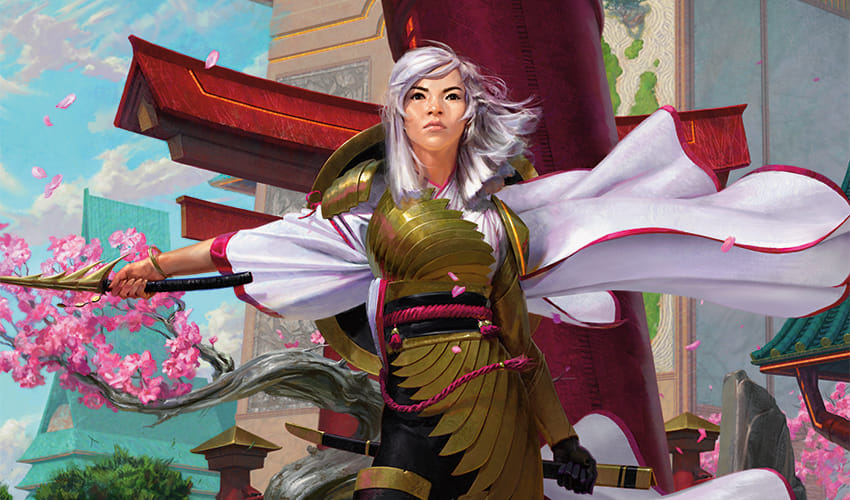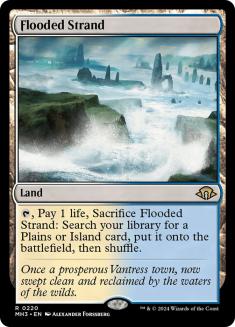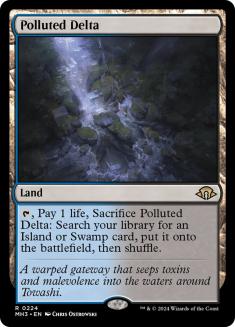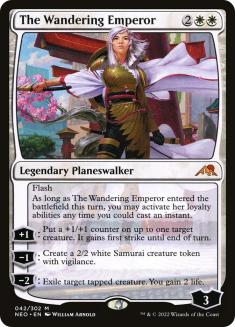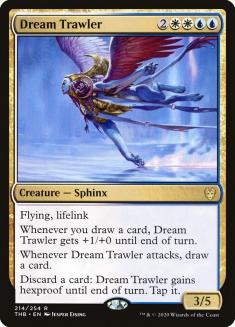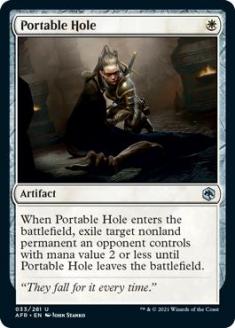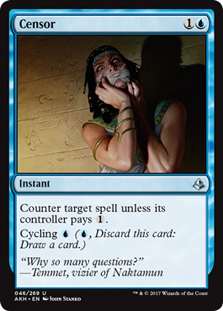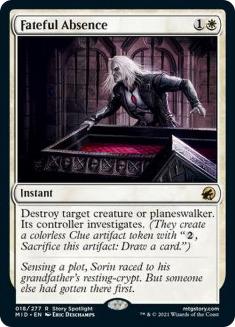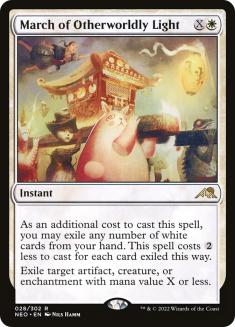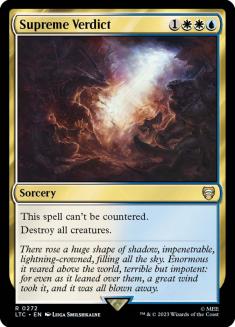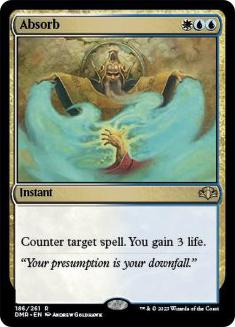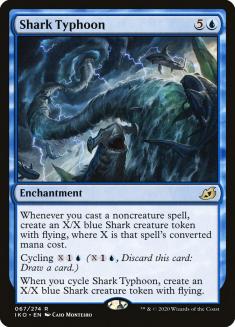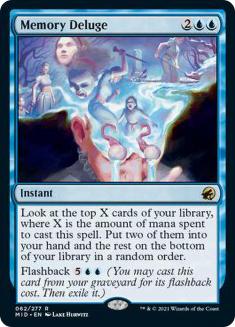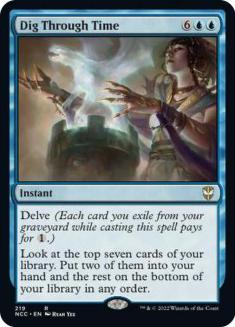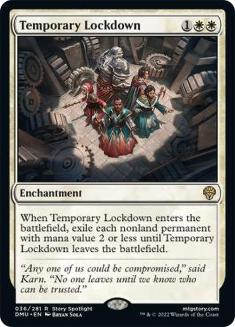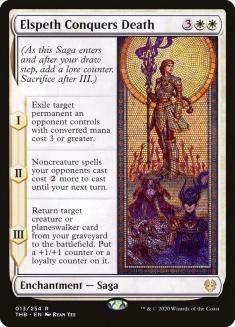With the Regional Championship and SCG CON Philadelphia right around the corner, preparing for Pioneer is the competitive world’s number one priority. I was unable to play in the Regional Qualifier Championships (RCQs) this time around, but I will always make it to SCG events on the east coast. I continue to get more comfortable in my new career, which has created additional opportunities for travel. It was painful to see all these RCQs come and go, especially those that were right around the corner from me. I plan to get back into the swing of official Organized Play events, starting with the RCQ season after Atlanta.
All the blunders of recent years aside, tournament Magic is in a great spot right now. Standard, Pioneer, Modern, and Legacy all have their unique draws. The more I play Pioneer, the more respect I have for a fetchland-less format. It is an honest format with some exciting gameplay, especially from the control perspective. Outside of a few problematic cards like Fable of the Mirror-Breaker and Karn, the Great Creator, the tools at control’s disposal as sufficient to handle the format’s threats. With Teferi, Hero of Dominaria at the helm, our floor is high.
Creatures (2)
Planeswalkers (7)
Lands (26)
Spells (25)

Azorius Control is viable in Pioneer and can easily contend with the top decks. Midrange decks continue to dominate the format, a deck type that has historically been control’s strong suit. The dynamic of this matchup has changed over the years as creatures and enemy planeswalkers out-produce us in the card advantage department. Each resolved threat on the opposing side of the battlefield requires an answer, but often leaves behind an advantage loss through entering (or leaving) the battlefield. Complaining about this paradigm shift helps no one. Control in Pioneer has adapted by incorporating the best elements of midrange, while staying true to its traditional disruption.
Joining Teferi in the midrange department is The Wandering Emperor. These two planeswalkers have pushed Azorius Control to a high-power level. Each are played in older formats, which is always a good sign. While Teferi requires some setup prior to its arrival, The Wandering Emperor is very low maintenance. Since it has Flash, it is impossible to attack down the turn its played. Not only does it have that level of defense, but it also produces a blocker or removes an attacker during combat. This type of planeswalker adds an additional dimension to control’s attack, forcing opponents to commit more pressure to the battlefield. If they do not, The Wandering Emperor punishes them, but if they do, a Supreme Verdict ends them. When control shifts away from linear gameplay, the future becomes brighter.
I am not the first to brag about these two planeswalkers being awesome. The big shift with Azorius Control, to better combat the midrange decks of the format, was the inclusion of Dream Trawler to the main deck. Dream Trawler is the ultimate punishment card in Pioneer. Upon its resolution, there are decks that will automatically fold. Some of best decks in the format have no answer to it Game 1, while also being ill prepared to defeat it Game 2. It has been the ace in the hole that has led to easy victories, and I am upset at myself for not realizing it earlier. It has hexproof, draws cards, gains life, and ends the game after a few connections. The sheer power and toughness of the creature makes it a safe Turn 6 play, able to fend off opposing creatures with relative ease.
I found myself boarding in Dream Trawler against most decks during testing. Whenever that occurs, it is likely that the card should be in the main deck. With Dream Trawler, it is not necessarily the case. If the mirror match were prevalent, it would be a terrible card to have Game 1. Opponents that have a hand full of sweepers would salivate at the idea of a six-mana tap-out from their control opponent. Azorius Control is a strong deck in Pioneer; however, it is still underplayed. This is usually the case with control decks, even if they are at the appropriate power level. Most players enjoy their creature-based decks, so do not let the low total-played numbers upset you. Anyone that has played a good number of matches with Azorius Control in Pioneer know there is something there. This version, with main deck Dream Trawler, is exactly what is needed to take on the best decks.
Portable Hole and Censor are the two big hitters for Azorius Control in the early-game. The world knows and respects Portable Hole, as it performs the heavy lifting against cheap creatures. Azorius Control is famous for its weakness against threats that arrive on Turn 1 and Turn 2, something that Portable Hole has assisted with. Censor is not as obvious and has been criminally underplayed by control decks in the format. Until Counterspell gets reprinted, Censor is going to have to get the job done. It counters any spell in the early-game, while having the option to Cycle if unneeded. Versatility is a trait that control players want on all their cards, especially on cheap disruption. Cycling to get to a land drop early, or a spell late, is why Censor is a staple in Azorius Control.
In addition to Portable Hole, additional removal spells keep us safe until Teferi and Dream Trawler arrive. Fateful Absence is a great catch-all, but I can only dedicate one slot to it. Drawing multiple of these feels bad, especially against aggressive decks that can dish out maximum punishment for receiving an extra card. March of Otherworldly Light is the most common removal spell that we see in Pioneer control decks. It has versatility like Fateful Absence and is an instant, with the drawback being it cannot hit planeswalkers. Each of these removal spells have their place in Azorius Control, but they all serve at the behest of the sweepers we also see in older formats.
Supreme Verdict is still the king of Azorius Control in Pioneer, taking care of business like it does in Modern. Having an uncounterable sweeper is something I will never take card granted, especially with midrange blue decks running around. It is also unconditional, something that was lost with recent iterations of that same effect. I am playing three copies in this version of Azorius Control, dedicating the fourth sweeper spot to Farewell. Although it costs two more, the modes make it work it. Having access to Game 1 graveyard, artifact, and enchantment hate is highly beneficial to control players. It also Exiles everything, which is directly applicable against the best decks in Pioneer. These sweepers make Azorius Control as strong as it is and creates a clean battlefield for its win conditions.
The other usual suspects are all accounted for in this version of Azorius Control. Shark Typhoon, Absorb, and Memory Deluge are all stock in any version you see out there. I had to make some difficult decisions with the number of each of these cards when leveling down from Yorion. Absorb is still a four-of, something I do not see in some Azorius Control lists. Having that hard counterspell and life gain Game 1 is vital against most decks, so I made sacrifices in other places. Shark Typhoon is a three or four-of in most control decks but had to be reduced to make room for Dream Trawler. Even though it is a cheap cycler, adding win conditions made it difficult to cut disruption. I have a third Shark Typhoon in the sideboard, but I could not dedicate anymore main deck slots to it.
Memory Deluge is still the card draw spell of choice in Pioneer control decks. It still hurts my soul to not play Dig Through Time while it is legal, even when I know the decision is correct. The lack of fetchlands and graveyard fillers in the early-game makes Memory Deluge the obvious choice. One of these days I will have enough interaction spells on Turn 1 and Turn 2 to make Dig Through Time mainstream again, but Memory Deluge will be sleeved up in the meantime. The other forms of card advantage come from the sweepers, planeswalkers, and Dream Trawler, further evidence that control had to dip into midrange tactics to remain competitive.
The sideboard continues to be a strong point for Azorius Control in Pioneer. Aether Gust, Dovin’s Veto, Rest in Peace, and Mystical Dispute are all broken cards that control has access to. Each of these spells assist in leveling the playing field against the top decks of the format. The new additions have been great as well, even if they do not see heavy play in older formats. Temporary Lockdown is a new weapon that control gained to prevent getting overrun. It saves the day against starts that kill you before your Turn 4 Supreme Verdict and hits non-creature permanents that hit the battlefield prior.
Narset, Parter of Veils, Elspeth Conquers Death, and Shark Typhoon assist against the slower decks of the format. It is easy to figure out how the other sideboard cards assist, but one may scratch their head at the sight of Elspeth Conquers Death. It is one of my favorite sideboard cards in Pioneer and I used to summon it Game 1 when I played an eighty-card deck. In the sixty-card version, it is very difficult to justify having it in the main deck. I bring it in against all the midrange and control decks out there, where it removes a difficult to kill threat and returns a glorious win condition to the battlefield. The third Shark Typhoon assists when the match needs to be reactive and tapping out is not an option. This sideboard is tuned for the current Pioneer metagame but may change if control gets more popular. I made a few concessions to increase its effectiveness against midrange, which should pay dividends in Philly and Atlanta.

